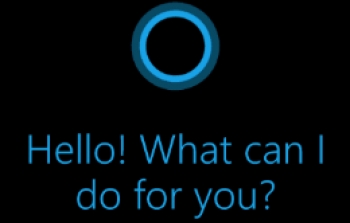Voice command and assistance is still very early technology. Cortana is showing more promise than the others are, because it will be part of the Windows 10 experience running on smartphones and over 1 billion Windows desktops and servers.
iTWire reviewed Cortana in its alpha (early) mode and concluded that it’s a useful personal assistant ‘if you get to know her – and vice versa." The article revealed the best way to address her and get responses.
Since then Cortana has gone to Beta in the US and UK and reviewers have been very positive about this new ‘interface’.
Cortana will become a standalone app on iOS and Android – it is an integral part of Windows and uses Bing for much of its research. Microsoft says it is returning to its software roots as part of its transformation – expect to see Microsoft on every brand and type of device.
|
|
Like any new technology, it has a lot more potential. Microsoft’s Eric Horvitz has revealed that with ‘Project Einstein’ it will begin to incorporate artificial intelligence, machine learning, context awareness, and the ability to nest, sort, and automate tasks.
For example, it will be able to read email and understand the context making recommendations for responses and actions.
Microsoft has a challenge however – gaining acceptance of the use of intelligent assistants. So far, feedback is that the recurrent use of OK Google and Siri have been limited to initial ‘tries’ on smartphones and then these languish. Perhaps Cortana on a desktop will make it a more usable proposition.
As an update, I have noticed Cortana now has a markedly better speech to text conversion than OK Google (on a Samsung S5) or Siri (on an iPhone 6). Where a few months ago it stumbled if a sentence was more than a few words long it now seems to process a whole paragraph.
Cortana needs broad use on iOS and Android to expand its capabilities - mindshare. The more people that use it, the more that it will learn and benefit all. Note that Cortana is not intrusive – all it learns about you is easily available and editable in it notebook.
And it may just do it under Google’s guard. Microsoft is reportedly teaming up with Cyanogen to make Cortana, Bing and many of its mobile apps the default on future versions of the popular operating system. It is also rumoured to be talking to Samsung on similar lines as part of the patent settlement earlier this year. The threat that this poses to Google is serious, since it could circumvent the search giant from the mobile and tablet OS into which it has invested a great deal of time and money.






































